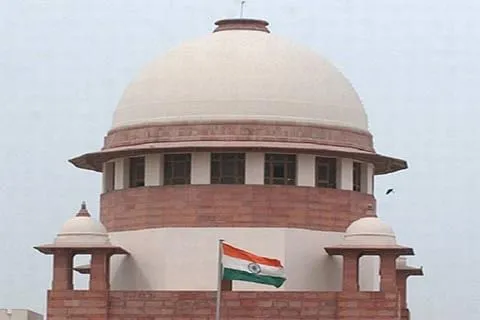New Delhi, Feb 3: The Supreme Court on Friday directed that its judgments laying down guidelines on arrest and bail be made as a part of the curriculum of State Judicial Academies (SJAs) where judicial officers are given training.
A bench of Justices Sanjay Kishan Kaul and AS Oka directed that the judgments in the cases Siddharth vs. State of Uttar Pradesh LL 2021 SC 391 and Satender Kumar Antil vs Central Bureau Of Investigation 2022 LiveLaw (SC) 577 be made part of the curriculum.
In Siddharth, a bench of the SC has held that Section 170 of the Cr. P.C. does not impose an obligation on the Officer-in-charge to arrest each and every accused at the time of filing of the charge sheet. The Court has observed that the practice of some Trial Courts of insisting on the arrest of an accused as a prerequisite formality to take the charge-sheet on record is misplaced and contrary to the very intent of Section 170 of the Criminal Procedure Code.
In Satinder Kumar Antil, a bench of the apex court has expressed concerns at the large number of undertrials languishing in jails and issued elaborate guidelines to ease the process of bail.
While the judgment emphasized that accused should not be remanded in a mechanical manner, it suggested that the Union Government should bring a ‘Bail Act’ to streamline the process for granting bail.
Today a bench comprising Justices Kaul and AS Oka issued the direction for laying down guidelines regarding arrest and bail part of the curriculum of State Judicial Academies while considering the Satinder Kumar Antil to ascertain the compliance by the States regarding the directions.
The High Courts were also directed to undertake the exercise of finding out the undertrial prisoners who are not able to comply with the bail conditions.
Senior Advocate Siddharth Luthra, assisting the court as amicus curiae in the matter, informed it that four High Courts -Tripura, Rajasthan, Jammu and Kashmir and AP – are yet to file their reports. Besides it, the amicus informed that court that very few states have filed their compliance reports.
“CBI is also yet to file its report,” he said.
The bench granted further four weeks to the States for filing the compliance reports, failing which, it said, their Chief Secretaries will have to appear on March 21, the next date of hearing.
In response to the contention by the amicus that the guidelines are being breached, the bench directed that the High Courts should state in their affidavits whether they have been monitoring the judicial officers on compliance with the judgment.






